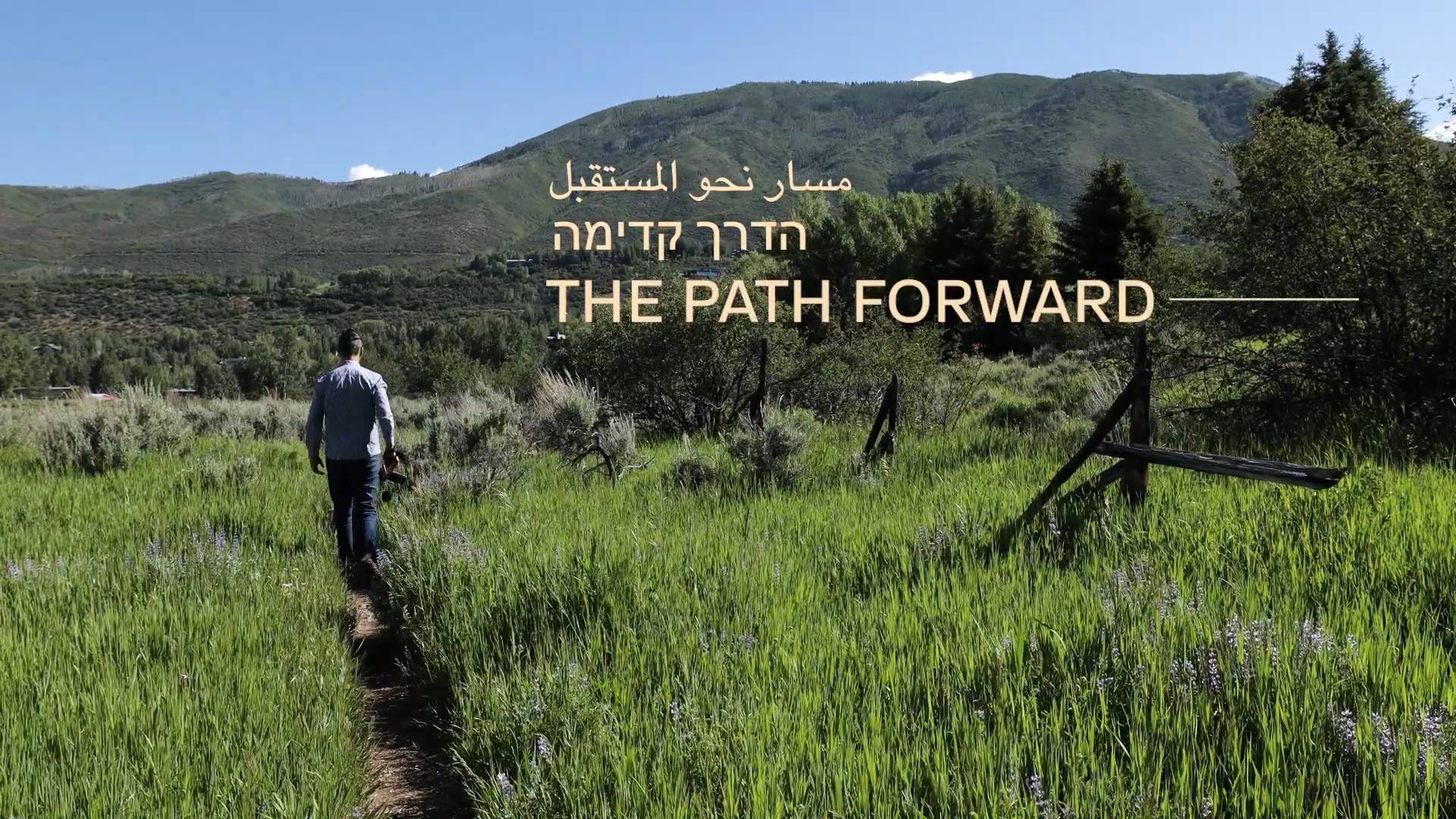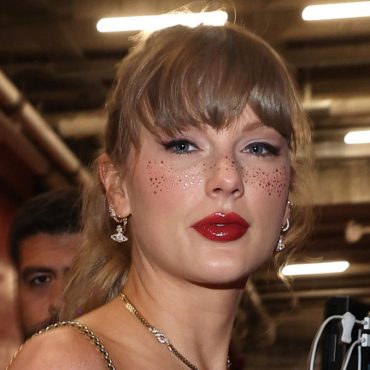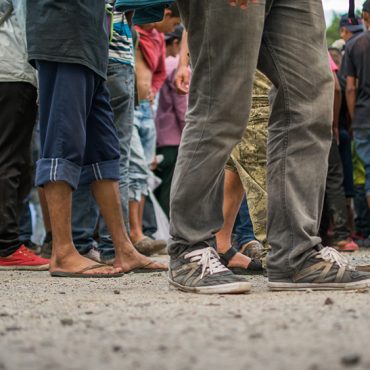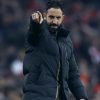This is a rush transcript. Copy may not be in its final form.
AMY GOODMAN: This is Democracy Now!, democracynow.org, The War and Peace Report. I’m Amy Goodman.
As we continue to mark the one-year anniversary of the Hamas October 7th attack on Israel and the beginning of Israel’s relentless assault on Gaza, we turn now to The Path Forward, a new short film that features the stories of Israeli and Palestinian peace activists who have joined together calling for a ceasefire in Gaza and an end to the occupation. This is a trailer for The Path Forward.
YAEL BRAUDO–BAHAT: All of us want to stop the killing of our children, our children and your children.
MAOZ INON: We are crying for the world to act now, before it will be too late.
ON-SCREEN TEXT: From their deepest pain.
MAOZ INON: What happened to my parents on October 7th, some nights I cry throughout the night.
AZIZ ABU SARAH: If somebody kills your brother, you want to hurt whoever hurts your family.
ON-SCREEN TEXT: They found their greatest purpose.
MAOZ INON: Every relationship that I will be able to build with Palestinians, it’s very meaningful.
AZIZ ABU SARAH: It didn’t matter to me that his parents were Jewish. Those who were killed were my people, too.
PROTESTERS: Salaam, peace, shalom!
JOMANA KARADSHEH: At this time of great pain, you choose to be together.
YAEL BRAUDO–BAHAT: If not now, when?
AHMED FOUAD ALKHATIB: I wanted to break the cycle of incitement, hatred, violence, revenge, rinse and repeat.
ALON–LEE GREEN: How can we move further away from this hashtag #StandWithPalestine or I hashtag #StandWithIsrael?
SALLY ABED: If we are not able to grieve the loss of our humanity together, we will never be able to plan a future together.
MAOZ INON: Those who believe that bombs will bring safety, they are naive. They are naive.
RIMAN BARAKAT: We lost our compass of humanity, and we need to bring that back.
AMI DAR: The idea that I should care more about a dead child who happens to be of someone who shares my nationality, as opposed to someone who does not, is insane to me.
PROTESTERS: No more war! No more war! No more war! No more war!
AMY GOODMAN: The Path Forward includes the stories of Palestinian peace activist Aziz Abu Sarah and Israeli peace activist Maoz Inon, who we just interviewed on this show. His parents, Bilha and Yakovi Inon, were killed in the October 7th attack. In this clip, The Path Forward, Aziz begins by talking about reaching out to Maoz after news of Maoz’s parents death a year ago today.
AZIZ ABU SARAH: It didn’t matter to me that Maoz’s parents were Jewish. That’s not part of the calculation. When people talk about October 7th, it’s Israelis versus Palestinians. It didn’t feel to me Israelis versus Palestinians. Those who were hurt, those who were killed were my people, too.
MAOZ INON: I just replied immediately, “Thank you for being there.”
AZIZ ABU SARAH: A few days later, he made a post on Twitter.
MAOZ INON TWEET: “I am not crying for my parents — I am crying for those who will lose their lives in this war.”
AZIZ ABU SARAH: He doesn’t want revenge, and he doesn’t want what’s happened to him to cause more people to suffer. And I said it took me eight years to come to that point. When my brother Tayseer died, he was 19 years old, and I was 10 years old. He was arrested on suspicion of throwing rocks. He was beaten up in prison by an Israeli soldier, which caused internal injuries. He died as a result of those injuries. It’s still painful. A few days after Maoz’s parents were killed, just I can’t imagine stepping out of your pain to think of somebody else’s pain, to think of what other people are going through. It takes so much of a humanity of someone to do that. So I wrote him that, and he sent me a message right away, saying, “Let’s talk.”
MAOZ INON: I knew that my life has changed dramatically. It’s not just what happened to my parents, my childhood friends and Israelis. I knew that a war was just about to happen, and a war that we have never experienced before in our lifetime. So, every contact, every bridge, every relationship that I knew that I will be able to build with Palestinians, it’s very meaningful, just for me, Maoz, as a person, but for the region.
AMY GOODMAN: An excerpt from The Path Forward, featuring Maoz Inon, who lost his parents a year ago today, and Aziz Abu Sarah, Palestinian peace activist, who’s joining us now from Greenville, South Carolina. He’s also author and founder of MEJDI Tours and a resident of East Jerusalem. When Aziz Abu Sarah was 9 years old, as you just heard, his older brother Tayseer died soon after his release from an Israeli prison of internal injuries suffered after he was tortured in prison. And here in New York, Julie Cohen is with us, the Oscar-nominated filmmaker who’s made many films, including RBG, My Name Is Pauli Murray, Gabby Giffords Won’t Back Down. Julie is a Jewish American and co-directed The Path Forward with Mo Husseini, a Palestinian American writer.
We thank you both for being with us. Aziz, your thoughts on this October 7th anniversary?
AZIZ ABU SARAH: It’s been a hard morning already just listening to news. And I’ve talked to Maoz already this morning, been in touch with some friends. But it’s been not just the anniversary of October 7th; it’s this whole year has been like a nightmare that I keep wishing I can wake up and just forget all about it and assume that — you know, believe that it was just a dream, just a nightmare. And unfortunately, it hasn’t.
Tens of thousands of people have been killed. So much pain, so much suffering. So many people I know, both Palestinians and Israelis and Lebanese, are suffering. My family are all in the West Bank and in East Jerusalem. Every time I get a phone call, I’m terrified of receiving horrible news. It’s been impossible to have a normal life in this last year. It is impossible to have a normal life. So, it’s just a reminder of how far we’ve gotten in a negative way, in a terrible way.
AMY GOODMAN: And, Julie Cohen, can you talk about focusing on Aziz and Maoz, Palestinian and Israeli peace activists, in this year of so much suffering?
JULIE COHEN: Yeah. I mean, you know, it’s a day of grief today. As Aziz says, there’s this sort of ongoing nightmare to wake up to every day. For me personally and for Mo, my directing partner in this, in a way, finding and sharing the voices of Aziz and Maoz and other pairs like them, because there are many, many more like this, is the greatest comfort to the nightmare and possibly, you know, the only hope, in our minds, of a solution, of a moving forward, of looking at the horrendous situation the world is in, people who have suffered the greatest pain, like Aziz and Maoz, who take that pain and think, “Wait a second. How can we go for,” as Maoz said earlier, “radical reconciliation, radical peace, a radical search for justice?” Like, in some ways, looking for love and compassion and sharing pain and sharing grief is better than the “militaristic solutions,” quote-unquote, which have failed us again and again and again. And so, we just wanted to bring their voices forward, because they seem useful and constructive in a world where there is too little usefulness right now.
AMY GOODMAN: In your film, you have woven throughout this a peace march of Palestinian and Israeli Jewish women that happened on October 4th, three days before last year’s October 7th. One of the people leading this march was Vivian Silver, the well-known Canadian Israeli peace activist, who would die on her kibbutz. We have interviewed her son, demanding a ceasefire from the beginning, as Maoz and Aziz have.
JULIE COHEN: Yes. You know, it’s a sadness almost that more of us weren’t aware of this march when it originally happened on October 4th, how little American news coverage this got, that the fact that a couple thousand women, Palestinian and Israeli Jewish women, together, linking arms, singing, calling, crying out for peace. And I think what’s so beautiful is how many of the activists, including those featured in our film, did not react to everything that was to come just a few days later by pulling apart, but it actually strengthened their resolve, you know, to, like, know this shows that what we need is something new and different, and let’s work together towards building improvement, building a better world.
AMY GOODMAN: Let me ask Aziz if you feel more or less hope. Right now you have Israel in the most massive, deadly bombardment of Lebanon that we have seen in decades. You have the bombing of Iran. You have Iran’s missiles on Israel. You have the bombing of — Israel’s bombing of Syria, Israel’s bombing of Yemen. As we wrap up, what gives you hope?
AZIZ ABU SARAH: Well, I want to just say something before I tell you what gives me hope, is Vivian was a dear friend who I’ve known for many, many years and was a mentor for me. And that image of Israelis and Palestinians marching together has not changed. That’s what gives me hope.
I was in Jerusalem just three weeks ago, and we went marching in Al-Auja, in a Palestinian village in the West Bank that the water was diverted away from the village to a settlement. And Israelis arrived from Tel Aviv, Israelis arrived from Jerusalem, Israelis arrived from all over, joining Palestinians, and we marched together. And I saw something powerful, is even though we were only a few hundred, the fear of those who opposed us — you know, the army and the police — even though we were extremely peaceful, compliant, we didn’t want to confront anyone, we marched with messages that says we refuse to be enemy, water rights for everyone, this kind of very universal language. And they were terrified. And in some ways, that gave me a little hope, because I can see how people who believe that war is the only way, what scares them the most is people like us. What scares them the most is people who are modeling a different future, that we’re able to say, “Look, we don’t hate each other. We can work together.” And so, it was no surprise that the police came and gave traffic tickets to everyone, pretty much, who arrived. It was no surprise that the military was trying to provoke us, because they were terrified that we are showing what the possibility is.
So I do have hope, and my hope is not in leaders or politicians who claim to be leaders. My hope is about the people who are like us, my colleagues, Israelis and Palestinians, who are refusing to fall into “If I’m Palestinian, I must hate all Israelis or Jews,” or “If I’m Israeli, I must hate all Palestinians,” and realizing that we are on the same side, those of us who believe in equality and justice and peace. And those who don’t yet, our mission is to convince those who don’t yet to join us and realize that bombing somebody else, killing a civilian, killing a human being is never going to be the way to bring you safety and security and that our route to freedom is a joint route.
AMY GOODMAN: And finally, we just have 30 seconds. The Path Forward, where can it be seen, Julie?
JULIE COHEN: You should be following myself, @filmmakerjulie, and @mohu on our socials. We’re moving towards more screenings of this film and getting it out where everyone can see it online very soon because of the urgency of Aziz and Maoz’s message and all the others that are involved in this really significant work.
AMY GOODMAN: We want to thank you, Oscar-nominated filmmaker Julie Cohen, co-directed The Path Forward with a Palestinian writer, Mo Husseini. And I want to thank Aziz Abu Sarah, Palestinian peace activist, featured in the film.
Coming up, we go to Durban, South Africa, where we’ll be joined by Palestinian poet Mosab Abu Toha. Then to Beirut. Stay with us.











Post comments (0)